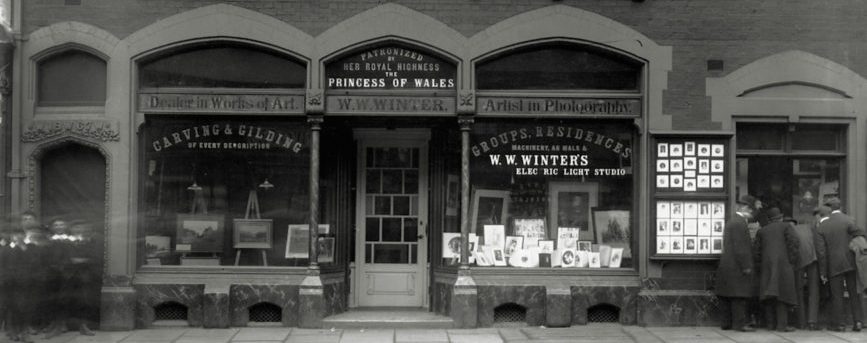This week Joanna starts to look at different aspects of Winter’s life:
The following quotation appears in the Winter Scrapbook which was found at the premises by volunteers sometime in the past 5 years. The scrapbook is a collection of newspaper cuttings about Walter Winter and the business. Unfortunately many of them are not credited to the newspaper in which they appeared. Walter Winter was a man of many parts; this cutting from the scrapbook sums up Mr Winter well, ‘trade, commerce, religion and philanthropy have all claimed his attention, as has the welfare of his fellow citizens’. His contribution to trade and commerce has been covered so I will now look at other aspects of his life.
W. W. Winter the churchman.
Walter had strong connections to the church from his early days. The Winter family had connections to both the Church of England and the nonconformist church. Family baptisms took place in church and chapel. He attended Holy Trinity Church on London Road being married there to Sarah Charles on 17 May 1864. He was received into that church on 27 February 1875 his name appearing in the baptism register. He had a long association with this church up until the time he emigrated to Canada in 1910 being churchwarden for many years. Accounts in local newspapers report his attendance at meetings, outings, bazaars, men’s bible classes, and Sunday school. Letters to his family show a deep belief in God and knowledge of the Bible as is shown by his use of quotations. This was particularly so at the time of his illnesses and financial difficulties. During the early 1900s he became involved in the Kensit Crusade which was against ritualism in the Church of England. John Kensit founded the Protestant Truth Society to oppose the influence of the Oxford Movement which sought the reintroduction of ‘catholic’ or Roman Catholic thought and practice to the Church of England. On moving to Vancouver Island, British Columbia, he was appointed a lay preacher in 1912. He extended the existing Mission Room in Happy Valley and built a meeting room, school room and reading room known as the Trinity Mission Hall. In 1915 he was ordained deacon in the Reformed Episcopal Church and presbyter in 1917.
Next time I will look at Mr Winter’s role as local politician.
